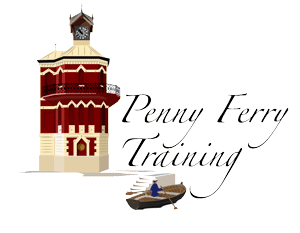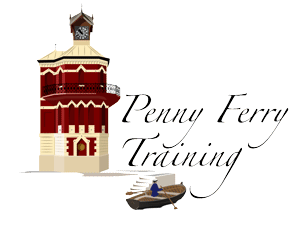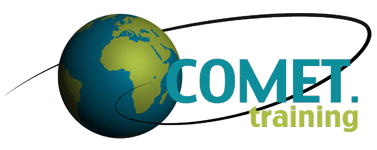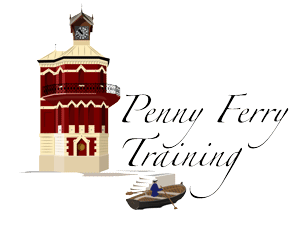 This is an Accredited Course, accredited by CATHSSETA, and covers the requirements for learners to become qualified and eligible
This is an Accredited Course, accredited by CATHSSETA, and covers the requirements for learners to become qualified and eligibleThe course covers the requirements of the Skills Program as determined by SAQA, and training in the range of outcomes defined in the following Unit Standards:
- Unit Standard 8440 "Conduct a guided nature experience in a limited geographical area" Level 2, 21 Credits
- Unit Standard 8478 "Create a guided experience for customers" Level 2, 20 credits
To achieve these Credits for each Unit Standard, 1 credit translates into 10 notional hours of learning.
Thus the Skills Program requires 41 Credits which means approximately 410 hours of learning (theory and practical)
The course consists of several learning Modules that cover the above Unit Standards outcomes. Each Module consists of a Presentation with Course Notes covering the subject matter, and requires the completion of a multi-choice Quiz to test the knowledge of the Learner. Some modules are accompanied by Video material, and some have Assignments that also need to be completed and submitted for scoring. The progression through the Modules is controlled in order to enable a Formative assessment of each Learner.
 and
and 
 This is an
This is an 
 This is a full Whale Watching Course, that is applicable to Boat-Based Whale Watching as well as Land-Based Whale Watching.
This is a full Whale Watching Course, that is applicable to Boat-Based Whale Watching as well as Land-Based Whale Watching.  This is an
This is an 

 The Modules of this Course are the additional Modules for the Nature (Marine) Site Guide Level 2 Course with specialty Shark Cage Diving.
The Modules of this Course are the additional Modules for the Nature (Marine) Site Guide Level 2 Course with specialty Shark Cage Diving. The Modules of this Course are the additional Modules for the Nature (Marine) Site Guide Level 2 Course with specialty Recreational Deep Sea Fishing.
The Modules of this Course are the additional Modules for the Nature (Marine) Site Guide Level 2 Course with specialty Recreational Deep Sea Fishing. The Working From Home course is designed to raise
awareness about how people can take care of their physical, mental and emotional health and well-being while working from home.
The Working From Home course is designed to raise
awareness about how people can take care of their physical, mental and emotional health and well-being while working from home. day - but they do not realise the immense challenges it also incurs. Isolation, loneliness, apathy and procrastination are just some of the pitfalls to manage and overcome. Just because one works from home, employers still
expect the productivity and efficiency from employees for which they are paying.
day - but they do not realise the immense challenges it also incurs. Isolation, loneliness, apathy and procrastination are just some of the pitfalls to manage and overcome. Just because one works from home, employers still
expect the productivity and efficiency from employees for which they are paying. Course Overview and Description
Course Overview and Description
 Verbal Communication is a skill. It is the most important initial
establishment of a working relationship, and leads to harmony and peace
in the workplace. Misunderstandings and barriers to communication waste
time, effort and therefore money. Poor communication can be disruptive,
annoying, and often leads to distress and misunderstandings, and
eventually to lost customers and business.
Verbal Communication is a skill. It is the most important initial
establishment of a working relationship, and leads to harmony and peace
in the workplace. Misunderstandings and barriers to communication waste
time, effort and therefore money. Poor communication can be disruptive,
annoying, and often leads to distress and misunderstandings, and
eventually to lost customers and business. A company's ethics will determine its
reputation. Good business ethics are essential for the long-term success of an
organization. Implementing an ethical program will foster a successful company
culture and increase profitability. Developing a Business Ethics program
takes time and effort, but doing so will do more than improve business, it will
change lives.
A company's ethics will determine its
reputation. Good business ethics are essential for the long-term success of an
organization. Implementing an ethical program will foster a successful company
culture and increase profitability. Developing a Business Ethics program
takes time and effort, but doing so will do more than improve business, it will
change lives.  Personal Time Management Skills are essential for professional success in any workplace. Those able to successfully
implement time management strategies are able to control their workload rather
than spend each day in a frenzy of activity
Personal Time Management Skills are essential for professional success in any workplace. Those able to successfully
implement time management strategies are able to control their workload rather
than spend each day in a frenzy of activity  reacting to crisis after crisis -
stress declines and personal productivity soars! These highly effective
individuals are able to focus on the tasks with the greatest impact to them and
their organization.
reacting to crisis after crisis -
stress declines and personal productivity soars! These highly effective
individuals are able to focus on the tasks with the greatest impact to them and
their organization.
 Administrative Assistants are a key part of
most office environments. They work quietly in the background, ensuring that
the business runs smoothly and efficiently. This course will give
administrative assistants tools that will make them that person that the office
can't live without. Experienced administrative assistants will learn new tools
that will make them more efficient and valuable than ever.
Administrative Assistants are a key part of
most office environments. They work quietly in the background, ensuring that
the business runs smoothly and efficiently. This course will give
administrative assistants tools that will make them that person that the office
can't live without. Experienced administrative assistants will learn new tools
that will make them more efficient and valuable than ever.  This Course will look at all types of customers and how we can serve them better and improve ourselves in the process.
This Course will look at all types of customers and how we can serve them better and improve ourselves in the process. 

 Would you like to be your own boss?
Would you like to be your own boss? 
 For the better part of every day, we are communicating to and with others. Whether it's the speech
For the better part of every day, we are communicating to and with others. Whether it's the speech you deliver in the boardroom, the level of attention you give your spouse when they are talking to you, or the look you give the cat, it all means something.
you deliver in the boardroom, the level of attention you give your spouse when they are talking to you, or the look you give the cat, it all means something.
 Participants will learn how to use the basic features of Word 2007.
This e-learning experience incorporates a hands-on approach to learning.
Participants will learn how to use the basic features of Word 2007.
This e-learning experience incorporates a hands-on approach to learning. computer. Taking the time to learn about the basic features of Word 2007
will increase their document creation skills.
computer. Taking the time to learn about the basic features of Word 2007
will increase their document creation skills. Participants will learn how to use the basic features of Word 2013. This e-learning experience incorporates a hands-on approach to learning.
Participants will learn how to use the basic features of Word 2013. This e-learning experience incorporates a hands-on approach to learning. 